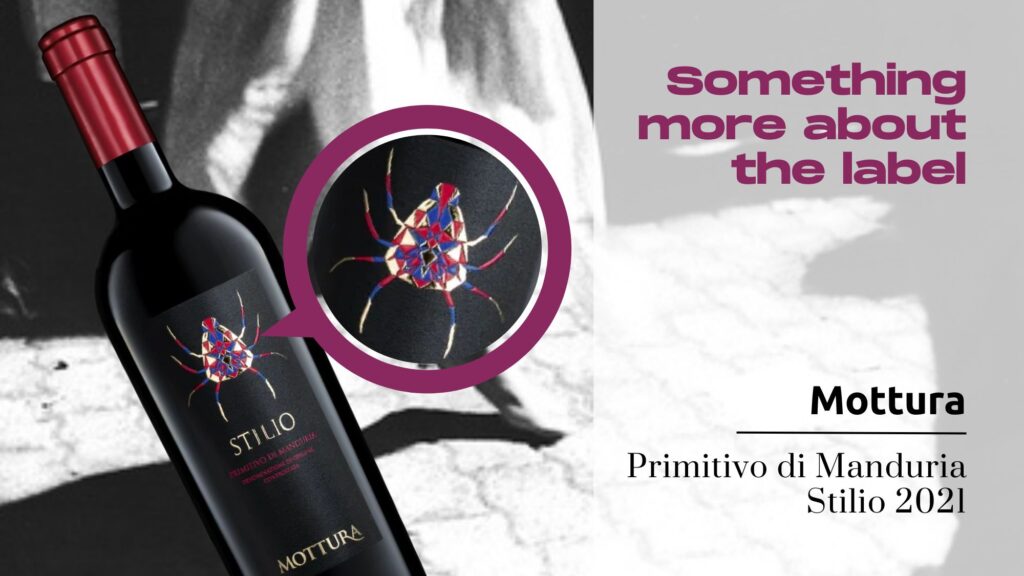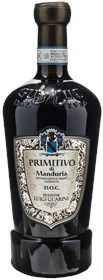Salento, in the south of Puglia, is one of those places where wine has a long history, often intertwined with legends, rituals, and traditions. In this corner of the planet, countless peoples have passed through, overlapped, and left their traces. There, where the sun makes the wine red and full-bodied, tradition has it that the bite of a spider can drive people mad. Only the wild dance and syncopated music of the pizzica can free them from the evil caused by that sting.
This story is depicted by the label of the Primitivo di Manduria Stilio 2021 by Mottura.

Tarantism in Salento
In the 1950s, anthropologist Ernesto de Martino introduced the term “Tarantism” to the world. When he went to Salento with his research team, he encountered an ancient cultural phenomenon. According to a widespread legend in Southern Italy and particularly in Salento, there supposedly existed a tarantula whose bite could induce altered states of consciousness, depression, melancholy, delirium, pain, or fatigue, especially in women. The number of cases of “tarantism” seemed to increase significantly during the summer, the harvest season.
This belief was first recorded in a medieval treatise written by the Bolognese physician Cristoforo degli Onesti, who referred to tarantism as a poisoning syndrome caused by the bite of a real or imaginary animal. The mystery surrounding this ritual, so famous in Salento, lies precisely on the border between reality and imagination.

In rural Southern Italy, and in contexts where mental health was not given much consideration, the term “tarantolato” or “tarantato” encompassed all mental illnesses or states of discomfort that could not be explained by a medical diagnosis.
Tarantism and the Pizzica
To address illnesses that could not be cured with traditional medicine, popular belief devised a ritual aimed at expelling the spider’s poison through physical exertion and sweat.
When the bitten person exhibited symptoms of tarantism, musicians and singers were called upon to perform what could be described as a true exorcism. The possessed person lay on a white sheet and awaited the beginning of the pizzica, the typical music accompanying the healing ritual.
The rhythmic and lively music led the tarantolati into a trance state characterized by convulsive dancing (in some cases, even epileptic seizures), during which the subjects would writhe, scream, and dance for hours, sometimes mimicking the movements of the spider possessing them, before collapsing exhausted on the ground.
The ritual, of pagan origin, later intertwined with Catholic tradition and the veneration of Saint Paul, whom family members invoked to aid the tarantolato, who found themselves battling with the spider possessing them for days.
What Remains of this Tradition
The rites and traditions of tarantism have now disappeared. However, a deep connection remains with the music, songs, and land that gave birth to them. The music of the pizzica and the dance of the taranta are now universally recognized as symbols of Salento. Important cultural events and folklore loved by the people of Salento and by anyone visiting the area have been built around them.

The tarantula is the protagonist of the label of the Primitivo di Manduria Stilio 2021 by Mottura because, just like tarantism and the pizzica, Primitivo di Manduria is a wine of Salento. In the warm southern sun, Primitivo grapes ripen early (hence its name), giving rise to a velvety, full-bodied, and aromatic wine, with hints of red fruit jam, marasca, and dried plum.
Let yourself be tantalized by this essence of Salento.














